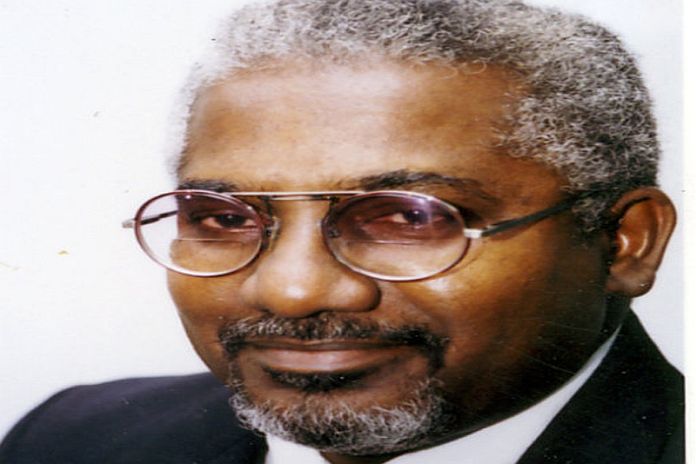Consider 1: “It should be borne in mind that there is nothing more difficult to arrange, more doubtful of success, and more dangerous to carry through than initiating changes in a state’s constitution. The innovator makes enemies of all those who prospered under the old order …” Machiavelli: “The Prince”. Manuscript: 1510, published 1532.
And 2: “Society, unlike biochemical processes, does not escape human influences. Man is what brings society into being.” Frantz Fanon: “Peau noire, masques blancs” or “Black skin, white masks”. Published 1952. Emphases added.
By Wilberne Persaud
Any gathering of Guyanese émigrés whether in London, New York, Toronto, at a Pub or restaurant, watching Test Cricket at Bourda, Kensington Oval or Sabina Park, almost inevitably the issue arises: Guyana’s potential, immense economic potential.
Then, again usually, the utterly predictable occurs as someone remarks: “… we’ve been hearing this refrain forever! When shall potential become reality?”. Undoubtedly, this was the situation at kickoff the very beginning of European imperial expansion in the hunt for El Dorado.
Today, there’s an amazing opportunity for this vaunted, hitherto elusive potential actually converting to its kinetic form, it’s about to become reality. Indeed, the International Monetary Fund (IMF) projections suggest 2020 economic growth outcome for the country may be a whopping 86 percent. The bulk of this is attributable to oil and gas.
Yet, consider this from Kaieteur News October 5, 2020, ‘front page comment’ below the headline: “Guyana has billions of US dollars in oil wealth. Why then should we be going around the world begging for millions of US dollars in loans to build bridges, roads and schools? Can you believe this sk@#t? Wake up, brothers and sisters! Wake up, Guyana!”
Furthermore, while we remain convinced there is no necessity for development to always be inimical to environmental sustenance, environmentalists insist on constantly ringing alarm bells. I share this concern, passionately. Devastation, however, is by no means inevitable, even within our current scientific knowledge. It’s the implementation that truly matters.
These feelings of concern, in part, identify a dilemma or more precisely, quandaries: fear of the so-called Dutch disease, unease and suspicion related to official corruption — recall president Trump advocated repeal of the 1977 law that makes it illegal for US Corporations to bribe foreign officials and the backdrop of turmoil and likely unrest presented by behaviours and prolonged uncertainty after the last election. And, who knows, what else?
Central to all this, however, is one fact and it is indeed a fact ‘Winner-Take-All’ politics has become alarmingly prevalent in the Commonwealth Caribbean States. This ‘politics of exclusion’, derives from a political culture in which the party that succeeds, banishes the opposition, along with all its supporters, to the wilderness.
Furthermore race, earlier weaponized by colonial divide-and-rule imperial policy, complicates political competition. British Guiana, granted self-governance in 1953, immediately chose the People’s Progressive Party (PPP). The multi-racial party led by Cheddi Jagan (Indo-Guyanese) included his wife Janet, a white American formerly involved in radical politics at University, Forbes Burnham (Afro-Guyanese) outstanding lawyer who would later take power and a coterie of sophisticated anti-colonial minded Guyanese including celebrated poet Martin Carter. With popular support overwhelming, the Party won 18 of 24 elected seats in the legislature having contested only 22 — the PPP had no funds to contest the other two.
Yet, almost immediately, a mere 133 days into the experiment, Britain suspended the constitution. The reforms and “radical” policies the new regime espoused included recognition of trades unions on the basis of workers’ majority vote. The colonial oligarchy, planters, merchants and Bookers were under threat.
Britain thus exploited the racial divide as the prospect of independence and control of the country’s resources were up for grabs. Turmoil ensued as divide-and-rule colonial policy, exacerbated by American Cold War fears, finally led to destabilizing interference culminating in 1962 with catastrophic disturbances.
This story is too long for discussion here but a rudimentary grasp of antecedents is necessary if Guyana’s fundamental problems are not to appear intractable, permanent. Let’s note: nothing comparably catastrophic has occurred since. This is a good thing, a sign, weak though it is, of potential for healing. In the shadow of prolonged uncertainty following last year’s elections, a cohort of Guyanese witnessed the toxic bile of racial politics for the first time in more than half a century.
So, what’s to be done?
The challenges oil and gas reserves, a non-renewable resource present are many. Apart from the well-understood burden of managing sudden surges of cash, obvious difficulties include:
- Dire need for institutional strengthening of ALL aspects of governance and its structures, a process required to achieve responsibility and concomitant accountability, without which long-term sustainable development is impossible, effectively reducing instances of governmental/technical decisions motivated by the election cycle rather than established optimal ‘best practice’.Imminent hazardous impacts of climate change: including flooding and sea-level rise, heat stress and an increasing probability of wildfires.
- Continued hollowing out of the local cadre of professionals with requisite skills to negotiate and manage arrangements with principals of firms engaged .in Foreign Direct Investment (FDI) the effect of decades-long brain drainEconomic vulnerability associated with the fortunes of the traditional export sector, particularly the sugar industry.
- Crumbling or non-existent physical infrastructure: bridges, canals/drainage for the below-sea-level coastal plain, roads and schools required for economic growth.
- Revealed reluctance of the major political parties to tackle responsibility, accountability and their handmaiden: truly widespread representation of the diverse population read: constitutional and electoral reform.
With this admittedly partial list of difficulties to be confronted, Part 2 discusses central issues required to establish a critical mass for sustainable economic and social development, economic policy to manage the new bounty of revenues with emphasis on broad societal equity, as well as measures to improve and sustain functional institutional structures.
To be continued …






